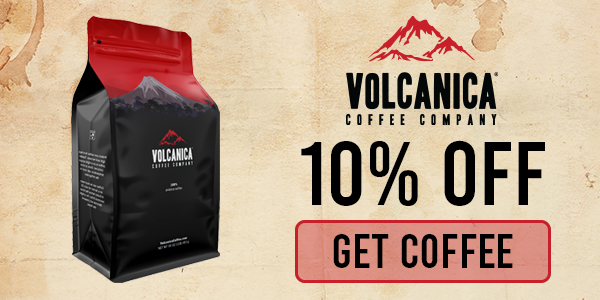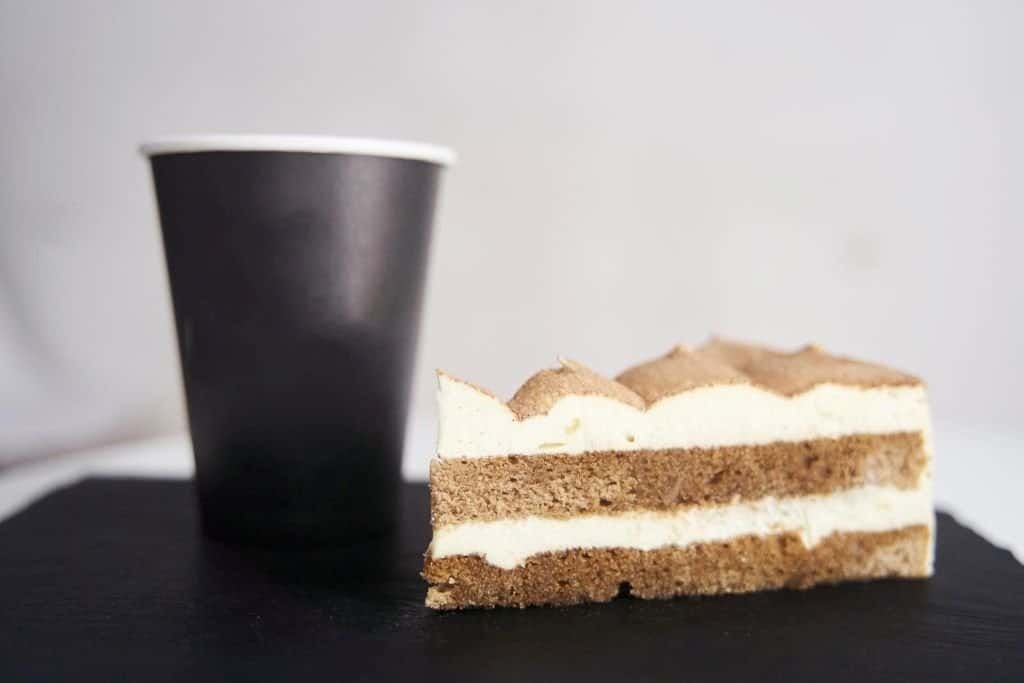When it comes to choosing coffee, you might be curious about which brands use arabica beans. Arabica beans are known for their superior quality and flavour, and they are favoured by many coffee connoisseurs around the world. In this article, we’ll explore some of the major coffee brands that are known for using arabica beans, so you can make an informed decision about your next coffee purchase.
You may already be familiar with a few coffee chains that use 100% arabica beans, such as Starbucks, McDonald’s, Tim Hortons, and Dunkin’. These brands emphasise providing a quality coffee experience for their customers, and it’s one of the reasons they choose arabica beans. Arabica beans, however, are not limited to these famous chains. There are smaller brands and specialty coffee shops that also pride themselves in sourcing the best arabica beans to create unique and tantalising blends.
Although arabica is considered the world’s best coffee variety, it’s essential to know that it is divided into several hundred sub-species with different characteristics based on the region of growth, taste, and effect. This means that even among arabica bean-using brands, you will discover a vast range of flavours and experiences. As you continue reading, you’ll get a better understanding of the different coffee brands that use arabica beans and how their offerings compare.
Understanding Arabica Beans

Arabica Coffee Origin and Features
Arabica coffee beans have their origins in Ethiopia and are the most popular variety of coffee beans globally. They are known for their high quality, complex flavours, and lower caffeine content compared to robusta beans. The beans grow at higher altitudes, allowing them to develop greater flavour, aromatic qualities, and acidity, thus providing a rich taste experience.
Varieties within arabica coffee include Bourbon and Caturra, with Bourbon beans being some of the best in the world for specialty coffees. They produce a dark, creamy chocolate flavour that is sweet and has light fruity overtones. Caturra, a natural hybrid of the Bourbon variety, also contributes to the diverse flavours of arabica coffee.
Arabica vs Robusta Coffee
When comparing arabica and robusta coffee beans, there are some distinct differences. The main differences include flavour, acidity, and caffeine content:
- Flavour: Arabica beans are known for their delicate, nuanced flavours and lower bitterness, whereas robusta beans possess a stronger, more bitter taste that is less appreciated by coffee enthusiasts.
- Acidity: Arabica coffee beans have higher acidity, which contributes to their bright, fruitier flavour profiles. Robusta beans have lower acidity and may present a more earthy and woody taste.
- Caffeine content: Robusta beans contain almost twice the caffeine of arabica beans, making them preferable for those seeking a stronger, more stimulating coffee. However, the high caffeine content also contributes to robusta’s bitter taste.
Major coffee brands, including Starbucks, McDonald’s, Tim Hortons, Dunkin’, and Blue Bottle Coffee Company, choose to use 100% arabica beans for their coffee. They prioritise an excellent-tasting coffee experience that appeals to a wider range of consumers, who typically prefer the taste of arabica over robusta.
Factors Influencing Arabica Bean Quality
Climate and Altitude
The quality of your Arabica beans is highly dependent on the climate and altitude at which they are grown. Typically, Arabica trees thrive at higher altitudes, between 3,000 and 6,000 feet. At these elevations, hot days and cool nights slow down the growth of coffee cherries, giving them more time to develop and resulting in a more complex flavour profile. This contributes to the fruity and caramel notes that are often found in your Arabica coffee. Some of the best Arabica beans are sourced from countries such as Brazil, Colombia, Costa Rica, Honduras, and Peru.
When it comes to climate, factors like rainfall, temperature, and humidity play a key role in the coffee’s flavour and aroma. Lower acidity levels in Arabica beans are often attributed to a balance between rainfall and temperature in their growing regions, which can lead to a smoother mouthfeel and a chocolatey aftertaste.
Roasting and Processing
The roasting process has a significant impact on the flavour and aroma of your Arabica beans. Generally, Arabica beans can be roasted to different levels, such as light, medium, or dark roast. Here’s a brief overview of each roast level and their flavour characteristics:
- Light roast: Retains more of the coffee’s original flavours, and typically has fruity, floral, or acidic notes.
- Medium roast: Strikes a balance between retaining the coffee’s original flavours and developing new flavour notes, like caramel and sugar.
- Dark roast: Creates richer, bolder flavours, often with chocolatey and smoky notes. While some of the subtleties of the original beans may be lost in a dark roast, this level works well for espresso due to its low acidity and bold flavour.
In addition to roasting, the processing method also affects the final quality of your Arabica beans. The most common processing methods are:
- Wet processing: Beans are fermented, washed, and dried, which tends to produce a cleaner and brighter cup of coffee with higher acidity.
- Dry processing: Beans are dried with the fruity layers still attached, leading to a heavier body and bolder flavour profile, often with fruity or winey notes.
- Honey processing: A hybrid of wet and dry processing, beans are fermented with some fruity layers still attached and are sun-dried, resulting in an intermediate profile with brighter acidity and a more pronounced sweetness.
By understanding the climate and altitude requirements for growing Arabica beans, as well as the roasting and processing methods used, you can better appreciate the factors that influence the quality, flavour, and aroma of your favourite coffee.
Popular Arabica Coffee Brands
Arabica beans are highly sought after by coffee lovers for their superior taste, low acidity, and unique flavours. In this section, you will find a list of popular Arabica coffee brands split into two sub-sections: Gourmet and Specialty Brands, and Commercial and Chain Brands.
Gourmet and Specialty Brands
For the gourmet coffee enthusiast, some of the best Arabica coffee options can be found among specialty brands. These brands tend to focus on ethical sourcing, sustainability, and artisanal roasting techniques. Here are some notable gourmet Arabica coffee brands worth exploring:
- Volcanica Coffee offers a wide range of unique, high-quality Arabica beans sourced from volcanic regions around the world, such as Hawaiian Kona coffee and Mexican coffee beans.
- Spirit Animal Coffee is a small-batch roaster that specialises in single-origin Arabica beans, emphasizing shade-grown cultivation and sustainability.
- Koa Coffee is renowned for their luxurious Hawaiian Kona coffee bean varietals, known for their smooth taste and nutty undertones.

Commercial and Chain Brands
For those looking to enjoy quality Arabica coffee without the gourmet price tag, many commercial and chain brands use Arabica beans in their blends. Here are some widely available options to consider:
- Starbucks predominantly uses Arabica beans and even offers single-origin, 100% Arabica options for those seeking distinctive flavours.
- Seattle’s Best is another well-known brand that uses 100% Arabica beans, providing a smooth and balanced taste.
- Caribou prioritises sustainable sourcing of their Arabica coffee beans and offers light to dark roasts, suitable for both drip coffee makers and espresso machines.
- Peet’s has a long-standing reputation for producing bold, complex flavours using high-quality, hand-roasted Arabica beans.
- Folgers is a widely available brand that offers a variety of blends using Arabica beans, often appreciated for their affordability.
- Lavazza is a popular Italian brand that combines Arabica beans with their traditional espresso roasts, resulting in a rich crema and intense flavour.
- Death Wish Coffee is known for the “World’s Strongest Coffee”, but also offers a blend of Arabica and Robusta beans for a powerful, bitter taste.
Many of these brands also offer low-acidity Arabica options, catering to those who may have concerns about stomach sensitivity or prefer a more gentle cup of coffee. Experimenting with these brands can help you discover your personal coffee preferences and lead you to your ideal cup of Arabica coffee.
Selecting and Brewing Arabica Coffee
Choosing the Best Arabica Beans
When looking for the best Arabica coffee beans, consider brands that are known for high-quality beans and consistent flavour profiles. Some recommended brands include Lifeboost Coffee, Stumptown Coffee Roasters, Trade Coffee, and Caribou Coffee. Be sure to also explore the different types of Arabica beans such as Peaberry coffee which is known for its smooth and sweet taste.
It’s essential to pay attention to factors such as:
- The roast level: Light, medium, or dark roast
- Origins and source: Beans sourced from reputable farms and regions.
- Freshness: Always look for a roast date rather than an expiry date.
- SUPER CREMA: A 2.2 lb whole bean coffee bag ideal for espresso preparation
- INTENSITY AND ROAST: This full-bodied medium roast offers a bold and creamy finish
- BLEND: Made from Arabica and Robusta beans, this naturally caffeinated blend is sourced from 15 coffee-growing countries around the world
- LAVAZZA ESPRESSO: A 2.2 lb whole bean coffee bag ideal for espresso or drip preparation (pack of 1).
- INTENSITY AND ROAST: With a 5/10 intensity, this fragrant medium roast offers a sweet and aromatic finish.
- BLEND: A 100% Arabica, naturally caffeinated blend sourced from South America and Africa.
- 100 percent Arabica
- Medium Roast
- Central America & African highland origins
Recommended Brewing Methods
To ensure a satisfying cup of Arabica coffee, experiment with various brewing methods to find the one that best suits your taste preferences. Here are a few popular brewing methods for Arabica coffee:
-
French press: This method is great for bringing out the mellow and complex flavours found in high-quality beans. When using a French press, opt for a coarse grind size and a brewing time of around four minutes.
-
Pour-over: If you’re after a smooth, clean taste, consider brewing your Arabica beans using a pour-over method like the Hario V60 or Chemex. The key is to use a medium-fine grind and to take your time pouring the hot water evenly over the coffee grounds.
-
Cold brew: Perfect for warm weather, the cold brew method extracts the natural sweetness of the beans and produces a smoother, less acidic coffee. Use coarsely ground beans and let them steep in cold water for up to 24 hours before straining.
-
AeroPress: For a quick, versatile brewing option, the AeroPress allows for both regular and espresso-style brews. It’s recommended to use a fine grind and follow the specified AeroPress instructions for brewing times and water-to-coffee ratios.
Keep in mind that while Arabica beans are widely known for their superior quality, consumer preferences can vary between specific Arabica coffee brand offerings like Lifeboost Medium Roast, Caribou Coffee, or Stumptown Coffee Roaster. Don’t hesitate to experiment with different brands in your brewing method of choice, including popular chains like Dunkin’, McDonald’s, and Tim Hortons. Remember that choosing the right brewing method, grind size, and coffee bean quality are crucial factors in achieving the perfect cup of coffee tailored to your liking.







